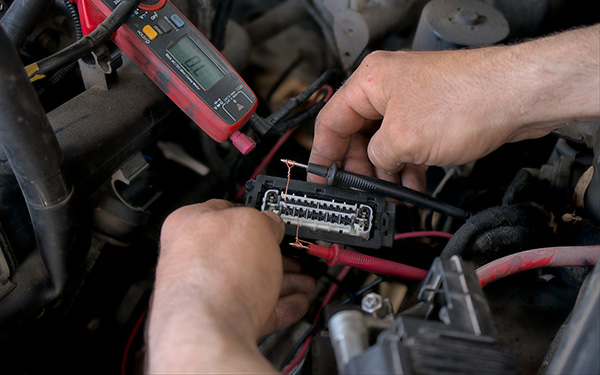
Modern vehicles are marvels of technology, packed with intricate electrical systems that make driving more convenient, efficient, and safe. From headlights to power windows, these systems work hard behind the scenes. But as essential as they are, electrical problems can disrupt your car’s performance in unexpected ways. Wondering what could be causing your car’s strange behavior? Let’s look at drivers' most common electrical issues and what to do about them.
Dead or Weak Battery
One of the most frequent culprits behind electrical issues is the car battery. If your vehicle refuses to start or the electrical components seem sluggish, your battery might be running low on power. Over time, all batteries wear out, and extreme weather—whether hot or cold—can accelerate the process. Corroded terminals or loose connections can also prevent the battery from delivering sufficient power to your car’s systems. If jump-starting becomes a regular ritual, it’s probably time for a replacement.
Malfunctioning Alternator
Your car’s alternator is like its personal generator, responsible for keeping the battery charged and powering electrical components while you drive. When the alternator starts to fail, you’ll likely notice warning signs such as dim headlights, flickering dashboard lights, or a battery warning light on your instrument cluster. A faulty alternator can leave you stranded, so don’t ignore these red flags.
Blown Fuses
Fuses are like the safety nets of your car’s electrical system. They protect your circuits from power surges and prevent more significant damage. If a particular feature—like your radio, power windows, or interior lights—suddenly stops working, a blown fuse might be the issue. While replacing a fuse is usually straightforward, repeated blowouts could indicate a deeper electrical problem that needs attention.
Starter Motor Problems
If your car doesn’t start, but the battery seems fine, the starter motor might be to blame. This critical component is what gets your engine running when you turn the key or push the ignition button. Symptoms of a failing starter include clicking noises when you try to start the car or complete silence despite a functioning battery. Ignoring starter issues can leave you stuck, so it’s best to address them promptly.
Faulty Wiring
Wiring issues can be tricky to diagnose, but they’re a common source of electrical problems. Over time, wires can wear out, become corroded, or sustain damage from rodents or accidental impacts. Faulty wiring can cause intermittent power failures, strange warning lights, or even electrical shorts. If your car exhibits unpredictable behavior, such as flickering lights or malfunctioning controls, it’s worth having the wiring checked by a professional.
Trouble with Lights
Lighting issues can be frustrating and unsafe, whether it’s your headlights, taillights, or interior lights. Dim or flickering headlights often point to alternator problems or failing bulbs, while non-functioning brake lights could be due to a blown fuse, bad wiring, or a faulty switch. Properly functioning lights are essential for visibility and communication on the road, so don’t put off repairs.
Non-Responsive Electrical Features
From power windows to heated seats, modern cars are loaded with features that rely on their electrical systems. When these stop working, it could stem from a failed motor, a blown fuse, or an issue with the control module. While these problems might not leave you stranded, they can certainly be inconvenient. Diagnosing and fixing these issues often requires specialized tools and expertise.
Battery Drainage
Sometimes, your car’s battery may drain even when the vehicle is turned off. This is often caused by parasitic drain—where something, like light or accessory, continues to draw power unnoticed. Faulty relays, electrical shorts, or even leaving a device plugged into a charging port can lead to this issue. If your battery consistently loses power overnight, it’s a clear sign that something is draining it.
Addressing Electrical Problems
Electrical issues can range from minor annoyances to significant safety concerns. If you notice warning signs like dim lights, unresponsive systems, or frequent starting trouble, it’s time to act. Diagnosing electrical problems often requires professional-grade diagnostic tools to pinpoint the root cause. Regular maintenance can help catch issues early, saving you from more extensive repairs down the line.
Whether it’s a faulty alternator or wiring trouble, Precision Import Repair has the expertise you need. Stop by today to get your vehicle back on track!